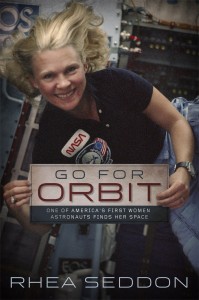Grounded!

Flight Surgeon Patch
One of the worst things a pilot (or a teenager…) can hear is,” You’re grounded.” For pilots, being stuck on the ground is usually due to one of two reasons – breaking the rules or having a medical problem. When I interviewed for the Astronaut Corps, I had to pass a very thorough physical exam. When I became an Astronaut, I had physicals annually by a Flight Surgeon, someone who has trained in aerospace medicine.
If something was found on my physical exam that might make it dangerous to fly, I wasn’t allowed in one of the NASA jets. If I had some injury or ailment and didn’t report it to the Flight Surgeon, I’d be in big trouble. At one point, I found myself grounded.

T—38
During a Shuttle emergency escape exercise, I twisted my foot sliding down an escape slide and broke four bones in my left foot. I was in a cast and out of the jets for six weeks.
As for not following the rules or doing something dumb in a NASA plane, an Astronaut might lose the chance to fly in space or be taken off a mission. With this very competitive group of pilots, there were plenty of opportunities to do dumb things, like seeing how far you could stretch a tankful of jet fuel or how bad the weather could be and still fly through it. Landing on a very wet runway and sliding off the end was not a good thing, either.

Flight Medicine Cinic
One of the toughest rules was that an Astronaut couldn’t participate in any activity which might cause an injury within a year of spaceflight. That meant things like snow skiing, sky diving, plane acrobatics or racing. The rule was almost as bad as being grounded for this very active group of folks.
The Flight Medicine Clinic kept a close eye on the Astronauts. Two Astronaut in the early days of NASA space missions had medical problems that took them off flight status. Alan Shephard, the first American to fly in space, was later grounded for an inner ear problem that gave him dizzy spells. After surgery for this ailment, he later walked on the moon. Deke Slayton, another of the Mercury Astronauts, was taken off flight status for an irregular heart rhythm but later was cleared to fly.

Backyard Party
When I first got to NASA, it seemed like the Flight Surgeons were searching for some reason to take a person off flight status. That set up a bad relationship between the docs and the flyers. As time went by and the staff changed, other doctors began to develop better working relationships with the Astronauts. They worked hard to keep us on flight status.
My husband and fellow Astronaut, Hoot Gibson, and I at one point developed a great rapport with the lead Flight Surgeon. When he announced his retirement, we had a party for him at our house. Almost all the Astronauts came to wish him well. It was a tribute to him and the Flight Surgeons we had come to appreciate and rely on to keep us healthy and flying. — Rhea
To receive Rhea’s blog to your inbox, simply sign up here, and we will see you next month!
Follow me on Facebook and LinkedIn.
Subscribe to Dr. Seddon’s YouTube Channel here!



Fascinating! Many thanks! John
I’m not sure I ever told you this, but I joined the Air Force during my third year in Medical School and served as a Flight Surgeon for nearly 10 years. I never grounded anyone and had an excellent relationship with the pilots. Flying F-16s was. pretty cool, too.
The old saying was that as a healthy pilot “the best you can do with the Flight Surgeon is to break even”; IE walk out of their office with your medical certificate intact!
How I hated to say “You’re grounded” and how I loved to say “You’re OK- go fly!
Interesting topic, given that the grounding of the initial commander of STS-46 isn’t mentioned….